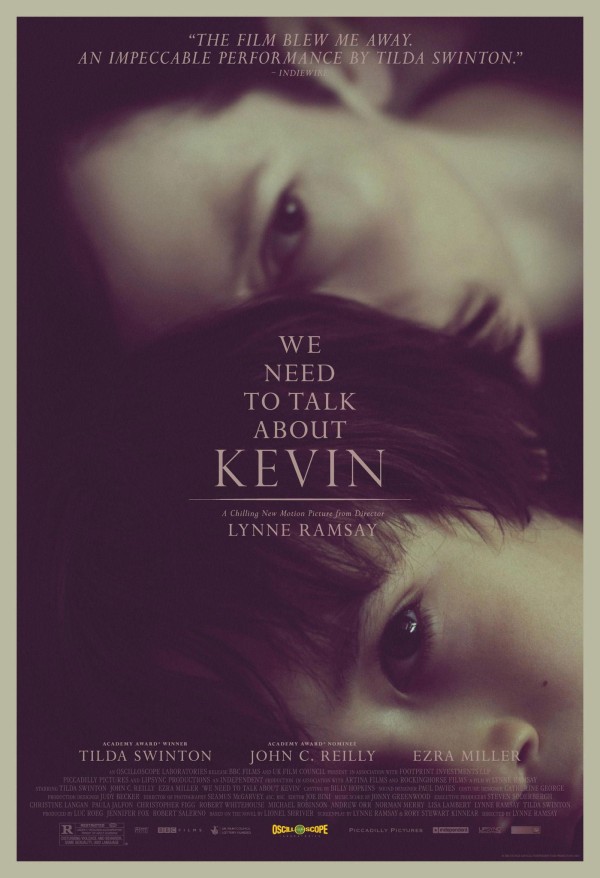
Often movies address a need for some voice to explore a certain idea, even if the implementation might be a bit shoddy. This movie attacks a necessary topic but does so in a way that while proficient in technique misses an opportunity to make the story come alive.
As many know, screenwriting possesses its own discipline of technique over content much as songwriting does, based on the kind of spreadsheet-logic that shows the sweet spot where 77% of people in a crowd understand and appreciate a gesture, which in aggregate makes the product successful. This “workshop style” of screenwriting arrives at this movie most likely through the book on which it is based, and prevents any wholehearted recommendation of this film. It addresses the mother of a child described as “evil” who is at the very least troubled in the kind of apathetic direction toward sociopathy that arises in children of narcissistic parents. Therein we find the issue, which is the question of what produced this child? His parents are not only narcissistic but have delusions of grandeur and apparently a fair amount of money; the child is also of mixed-race and somewhat gender-mixed as well. Kevin appears in this film as troubled from his youngest days through adulthood, but what is more difficult to watch is the obliviousness of parental response, and it is perhaps in this that the intent of this film rests: people are focused on using others as means to their own ends, and as a result, they raise children in a void of common sense, actual love, concern, discipline, authority and attention. Children are designed to be accessories to the self-importance — measured in career, wealth, social prestige and other external accomplishments — of the parents. As a result, children are left empty and unattended, and sometimes one of those takes that in a hostile direction.
While no spoilers will be given here, the plot is not hard to figure out since it is as said above “workshop style,” which means that it is based on the predictability of things and the reactions of people as if they were simply complex chemical compounds in unique situations. In my view, this is what makes We Need To Talk About Kevin somewhat tedious: it is wholly linear despite attempts of the filmmaker to break up the narrative over different threads in time. The story itself is linear. Narcissists raise child, cannot snap out of their own little worlds to do something about it and then… and then, what you might expect would happen happens, and the viewer ends up without much sympathy for anyone involved.
http://www.youtube.com/watch?v=TGjjK5SMbJA
9 CommentsTags: drama, narcissism





